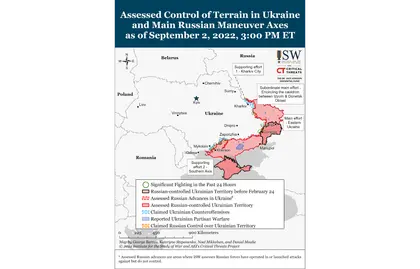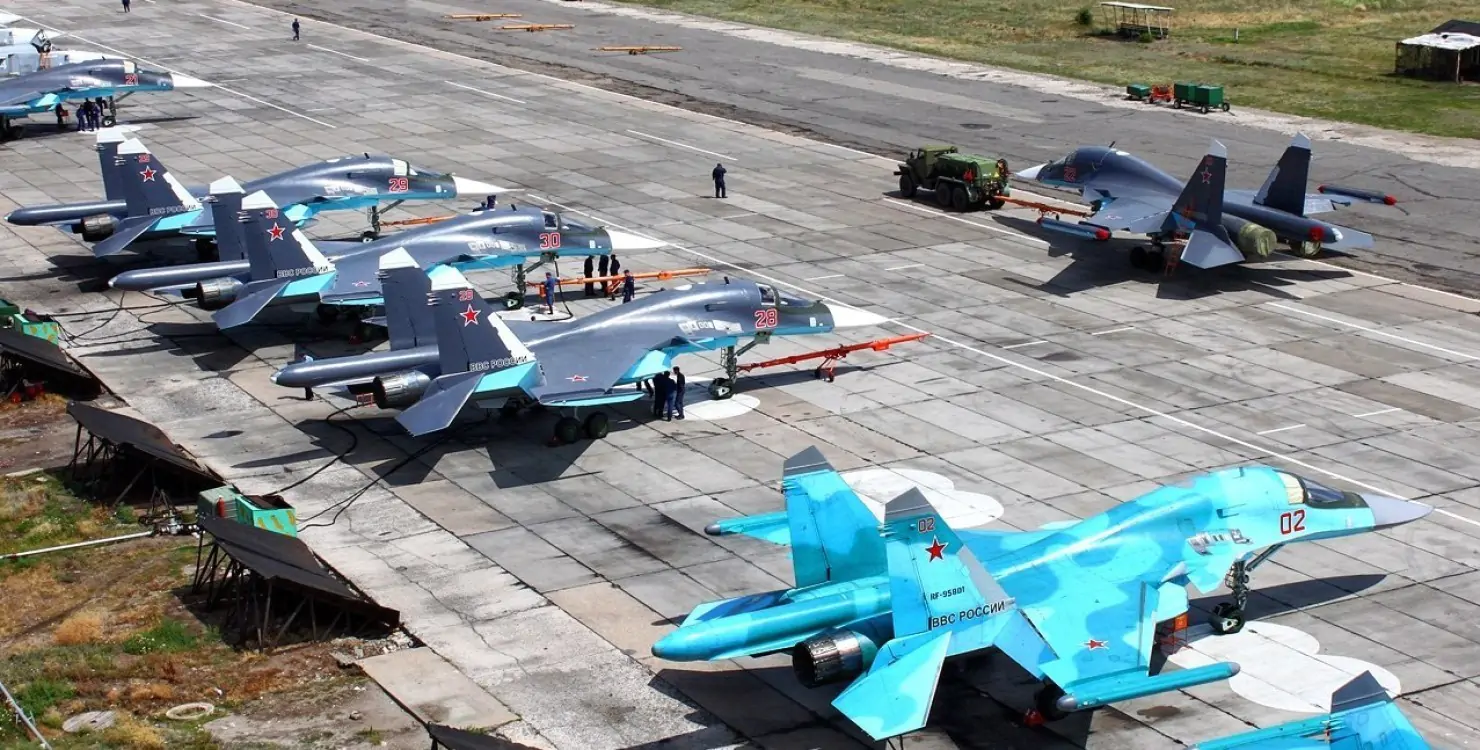Key Takeaways
- Independent polling showed that a majority of Russians still support the Russian war in Ukraine.
- Russian and proxy officials are solidifying their narratives surrounding the Ukrainian counteroffensive to claim it will debilitate the Ukrainian military.
- Ukrainian officials reported that positional battles are underway in unspecified areas of Kherson Oblast and that Ukrainian forces are continuing to strike Russian ground lines of communications (GLOCs), logistics nodes, and reinforcement efforts throughout southern and central Kherson Oblast.
- Russian forces conducted ground attacks south and northeast of Bakhmut and along the western and northern outskirts of Donetsk City.
- Russian forces continued targeting Ukrainian rear areas along GLOCs and may be reinforcing the Southern Axis by reallocating equipment from Russian rear areas in Donbas and Crimea.
- Ukrainian sources claim that Russia can pull an additional 300,000-350,000 military personnel from support units in Russia, Syria, Armenia, Tajikistan, Nagorno Karabakh, and Kazakhstan. These figures do not accurately represent the fact that support units placed into combat roles will not generate substantial combat power and are necessary for supporting combat, training, and other operations.
Russian independent polling organization Levada posted survey results on September 1 indicating that while the majority of Russians still support military operations in Ukraine, public support for the war may be gradually declining. Levada stated that the overall support for Russian forces in Ukraine has not changed significantly over the summer, with 76% of the survey’s respondents in favor of the action of Russian forces in Ukraine (46% strongly supporting and 30% generally supporting).[1] Levada also noted that 48% of respondents believe that it is necessary for Russian operations in Ukraine to continue.[2] The polls showed that 44% of respondents were in favor of peace negotiations and that a majority of Russia’s younger segments of the population (18-39-year-olds) favor negotiations.[3] In March of 2022, Levada found that 53% of respondents strongly support Russian military actions in Ukraine but that the percentage of respondents in this category declined to 46% by August.[4] This is a minor deterioration and will not fundamentally impair the Kremlin’s ability to conduct the war. However, declining support and war weariness will likely increasingly impede Russian recruitment and force generation efforts.
JOIN US ON TELEGRAM
Follow our coverage of the war on the @Kyivpost_official.
Russian and proxy officials are solidifying their narratives surrounding the Ukrainian counteroffensive to amplify false claims that the Ukrainian counteroffensive in Kherson Oblast is detrimental to Ukraine’s continued existence. Russian Defense Minister Sergey Shoigu claimed on September 2 that Ukrainian President Volodymyr Zelensky planned the Ukrainian counteroffensive in Kherson Oblast solely to create an illusion among “Western curators” that Ukrainian forces can conduct an effective counteroffensive.[5] Luhansk People’s Republic (LNR) Deputy Interior Minister Vitaly Kiselyov claimed that Ukrainian forces’ engagement in the counteroffensive was (referring to the offensive in past tense) “collective suicide” and suffered high casualties.[6] Belarusian President Alexander Lukashenko claimed on September 1 that internal Ukrainian divisions will soon force the military conflict to end.[7] Russian milbloggers increased their amplification of these narratives on September 1-2 as the information space around the success and tempo of the Ukrainian counteroffensive remained murky.[8] Russian sources will likely continue propagating these false information narratives to exploit Ukrainian operational silence. As ISW has previously noted, complex counteroffensives cannot be resolved overnight or in a matter of days, and the Russian presentation of an immediate Ukrainian failure due to a lack of constant Ukrainian claims of territorial gains is a deliberate obfuscation of reality.[9]

How Poland’s Trade with Russia Undermines EU Sanctions and Support for Ukraine
Authors: Kateryna Stepanenko, Karolina Hird, Grace Mappes, Layne Philipson, George Barros, and Mason Clark
See the full report here.
You can also highlight the text and press Ctrl + Enter






